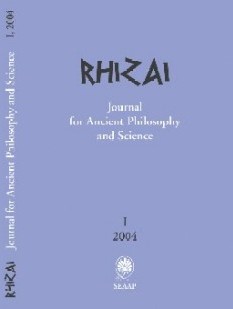Isocrates, Plato, and Aristotle on Rhetoric
Isocrates, Plato, and Aristotle on Rhetoric
Author(s): Chloe BallaSubject(s): Philosophy
Published by: Издателство »Изток-Запад«
Keywords: empiricism; rationalism; stochastic art; dialectic; democracy; Sophists; oratory; experience; endoxa
Summary/Abstract: Scholars often regard the 4th century controversy on education as a rivalry between philosophy, which is represented by Plato and Aristotle, and rhetoric, which is represented most prominently by Isocrates. The problem with this view is that it presupposes a distinction between philosophy and rhetoric which seems to be the product rather than the cause of the controversy. In this paper I discuss certain aspects of Isocrates’ thought which allow us to place him in the beginning of a tradition which only later would be recognized as empiricist. Both Plato and Aristotle oppose Isocrates, but their arguments develop in different directions. I argue that Aristotle, who is influenced by Isocrates, provides him with the normative context rhetoric needs in order to qualify as an art. This, however, does not imply that Aristotle subscribes to empiricism. Following Plato, he postulates a realm of real essences grasped by reason which, in Aristotle’s case, ultimately accounts for his view that rhetoric is an offshoot of dialectic. By contrast, Plato bans rhetoric completely from the state, handing over the task of persuasion to the philosopher or the ideal legislator.
Journal: Rhizai. A Journal for Ancient Philosophy and Science
- Issue Year: I/2004
- Issue No: 1
- Page Range: 45-71
- Page Count: 27
- Language: English
- Content File-PDF

